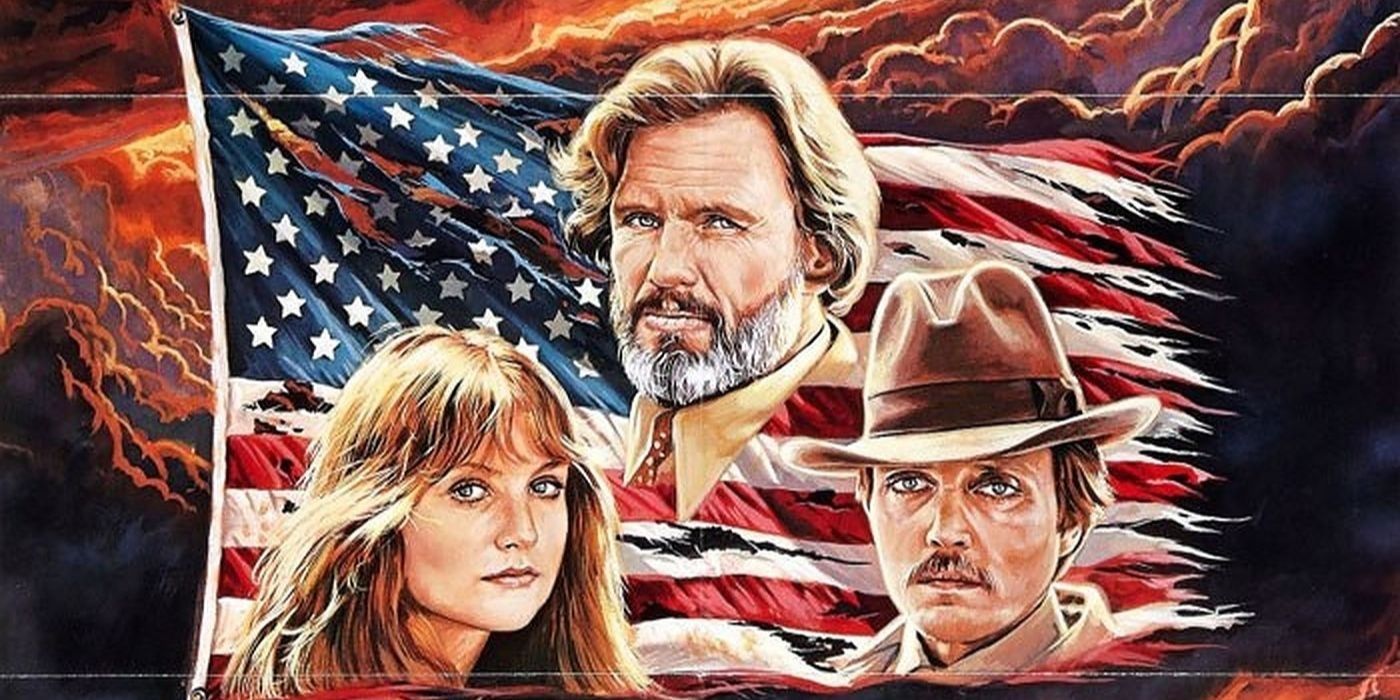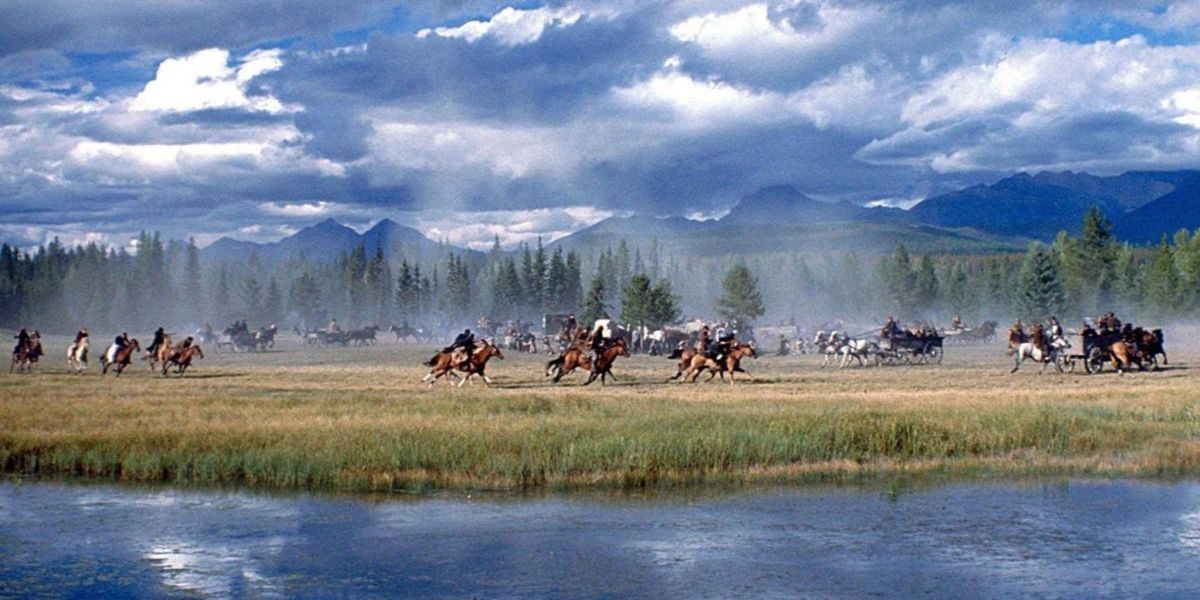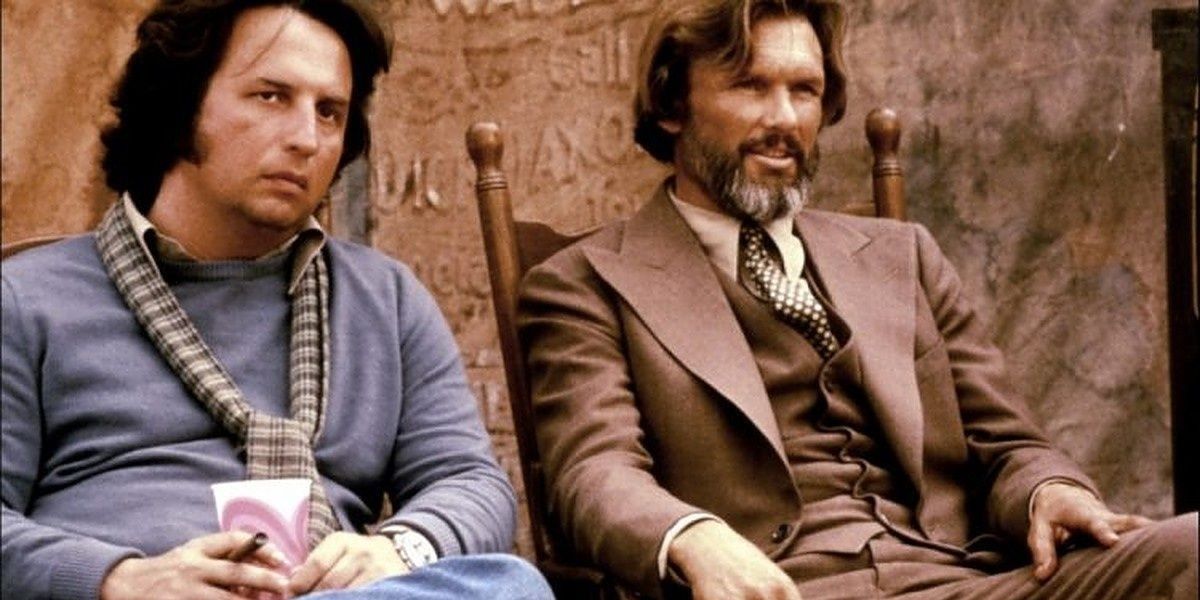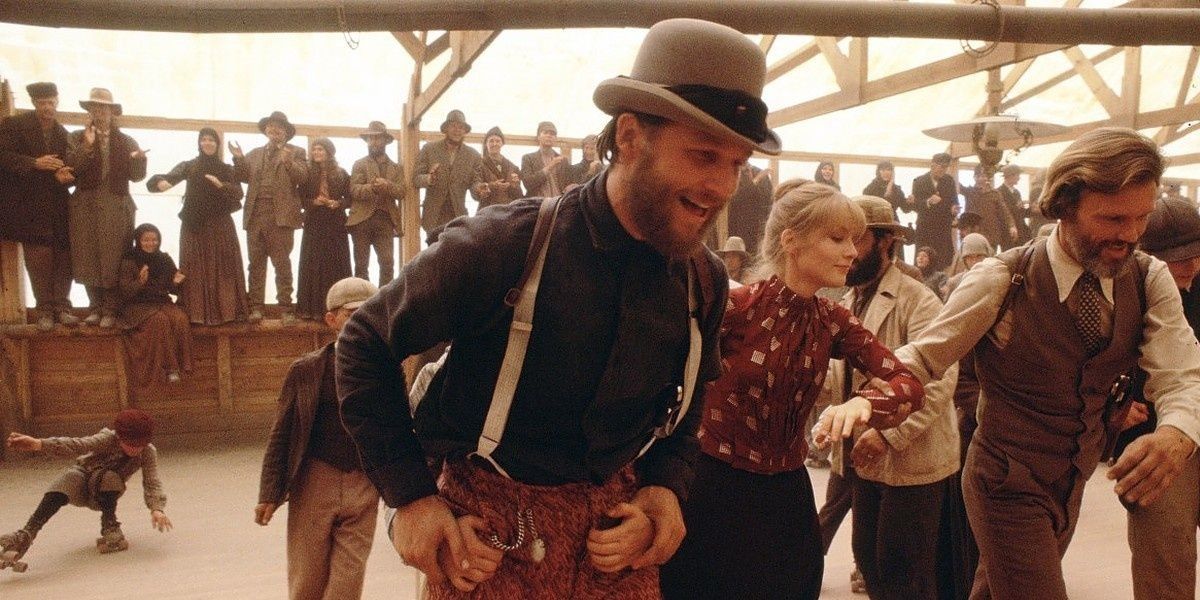The 1970s were a Golden Age for young directors like Spielberg, Scorsese and Coppola, who were given the freedom by major Hollywood studios to create some of the most influential films of all time. Another director named Michael Cimino was making it at that time as well, his crowning achievement being the 1978 Vietnam War drama The Deer Hunter. The film won five Academy Awards including Best Picture and Best Director, and it remains on the American Film Institute's list of the 100 Greatest Movies of All-Time.
With the triumphant success of The Deer Hunter, Cimino had the power to make whatever kind of follow-up he pleased, and he decided to make one of most ambitious films ever. Titled Heaven's Gate, he wrote the script based on the Johnson County War in 1890, an interesting and forgotten event in American history. During that time there was a great wave of Eastern European immigrants who settled for a new life in the west; however, in Johnson County, Wyoming, wealthy cattle ranchers hired mercenaries to kill immigrants they saw to be thieves and anarchists. Kris Kristofferson, Christopher Walken and Isabelle Huppert were cast as the main characters of this sweeping epic.
By the time United Artists decided to back Cimino, the once-thriving studio was at a low point when established executives Arthur Krim and Bob Benjamin left after a feuding with parent company Transamerica. Young UA executives David Field and Stephen Bach were now in charge of production and looked to Cimino as the director who would rebuild their image. What Field and Bach didn't realize was that Cimino was perfectionist who took advantage of his carte blanche power and ballooned his initial $11.6 million budget into $44 million.
The production of Cimino's film, which was anticipated to be one of the greatest films of all-time, has become more legendary than the final product. By the sixth day of shooting Cimino was five days behind schedule. He would also tear down sets and rebuild them if there was a detail he didn't like, and he shot up to 30 to 50 takes per scene. Filming took so long that actor John Hurt decided to go do The Elephant Man while waiting for his scenes in Heaven's Gate.
"He created something that we fondly called 'Camp Cimino,'" Jeff Bridges says in the documentary Final Cut: The Making & Unmaking of Heaven's Gate. "7 o'clock you go and you take riding lessons, and then at 9 o'clock you had cockfighting lessons, and then you had your Slavic dialect lesson."
"I mean we had a bus that picked us up in the morning, and the first thing we did is we would go shooting off rounds of blanks," fellow actor Brad Dourif says in the documentary. "We had blank gun lessons. Then after that, we went riding, we had riding lessons. And then after that, we went and had roller skating lessons."
Filming Heaven's Gate wound up being 165 days instead of its planned 69, pushing back its initial release nearly a year. While production barred media from set, with hopes of the issues not coming to light, a freelance journalist named Les Gapay joined the film as an extra and wrote a scathing behind-the-scenes article about Heaven's Gate before filming was complete. He unveiled controversies about the production, such as animal cruelty, extras fainting and Cimino's obsession with perfection. The public ate up the story and salivated at the thought that this high budget film could be a total train wreck.
When shooting of Heaven's Gate wrapped up in the Fall of 1979, Cimino had a record 1.5 million feet of film and 225 hours of total footage. When he showed his initial cut to United Artists the film ran over five hours long. The executives were furious and demanded he cut it for its release on November 19, 1980. His new cut ran for three and half hours.
After the movie premiered, New York Times chief film critic, Vincent Canby, eviscerated the film, calling it an, "unqualified disaster" and remarking, "Heaven's Gate fails so completely that you might suspect Mr. Cimino sold his soul to the devil to obtain the success of The Deer Hunter, and the Devil has just come around to collect." His review continued with incredibly scathing lines like, "watching the film is like a forced, four-hour walking tour of one's own living room."
Following the initial massacre by critics during its first week in New York, United Artists and Cimino pulled the film from distribution. Five months later, a heavily edited, two and half hour cut was released, but did not receive positive reception yet again.
"Why is 'Heaven's Gate' so painful and unpleasant to look at?" Roger Ebert says in his review. "I'm not referring to its content, but to its actual visual texture: This is one of the ugliest films I have ever seen."
The official numbers of Heaven's Gate are staggering. The $44 million movie only grossed $3.5 million worldwide. To add salt to the wound, it earned five Razzie Award nominations and won one for Worst Director. For United Artists, the same studio that was formed in 1919 by cinema icons like Charlie Chaplin and Mary Pickford, Heaven's Gate single-handedly closed their doors.
The Transamerica corporation sold UA to merge with MGM, and the movie industry would never be the same again. Heaven's Gate became the cautionary tale as to what happens when a filmmaker is given too much power, thus the Golden Age of the director came to a swift end.
Michael Cimino never fully recovered from the disaster and only made four feature films following Heaven's Gate before dying in 2016. The Deer Hunter will always prove his greatness and dedication as a filmmaker, and in a way Heaven's Gate does too, the only problem is that he was too dedicated.
In the four decades since Heaven's Gate a new generation of filmmakers managed to bring the auteur filmmaking back to Hollywood. Despite the dark cloud cast over Heaven's Gate financial-wise, in recent years there has been a small groundswell of appreciation for the movie itself. The film is even apart of the Criterion Collection.




